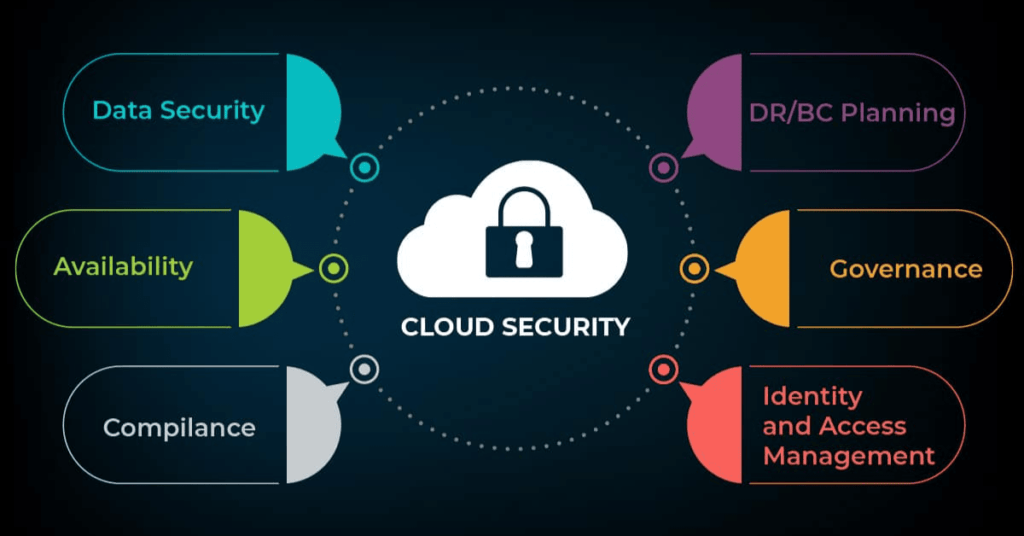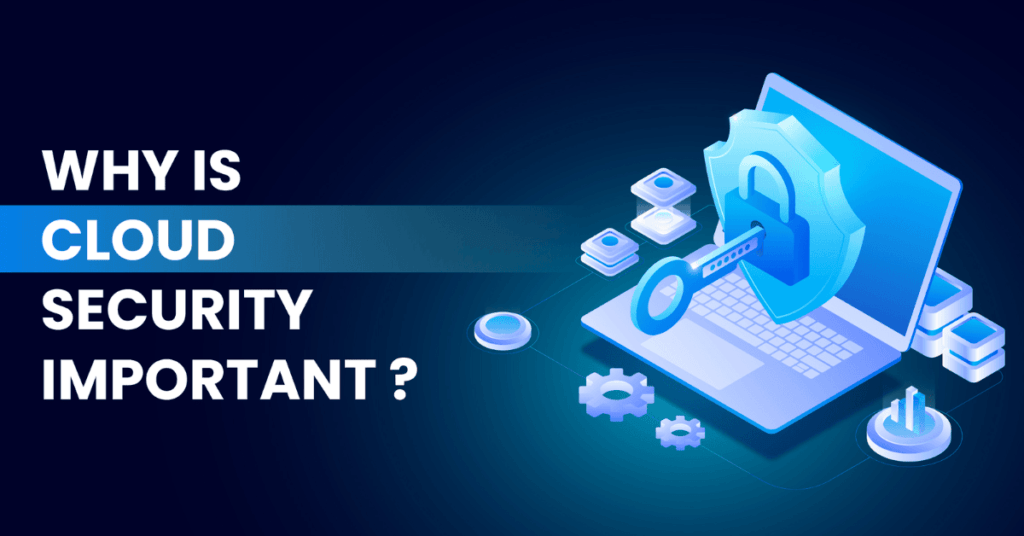As more and more businesses store their data and run applications in the cloud, ensuring its safety has become more important than ever, Cloud security refers to the measures and practices put in place to protect information and services that are hosted on the cloud. With cloud computing offering many benefits such as accessibility and scalability, it ’s crucial to keep data safe from potential threats like hacking, data breaches, and unauthorized access.
In this article, we will explain what cloud security is, why it’s important, and how businesses can use it to keep their data secure.
Cloud Security
Cloud security is the protection of digital resources stored and accessed over the cloud. It includes practices, technologies, and controls designed to protect applications, data , and services from cyber threats. Cloud security helps ensure that sensitive information, such as customer data or company secrets, stays secure while being stored, transferred. or processed on cloud platforms.

Whether using public, private, or hybrid cloud models, cloud security is crucial for keeping everything safe and accessible only to authorized users.
Why is Cloud Security Important?

Cloud security is necessary for several reasons:
1. Protecting Sensitive Information
Organizations store a wide range of sensitive data, from customer information to financial records , in the cloud. Cloud security ensures that this data is kept safe from hackers or unauthorized access.
2. Maintaining Trust
For businesses, trust is everything. A security breach can damage a company ‘s reputation and cause customers to lose confidence. Cloud security helps businesses maintain trust by protecting sensitive information.
3. Avoiding Data Loss
Data loss can occur for various reasons, from cyberattacks to hardware failures. Cloud security help s minimize the risk of data loss by offering robust backup systems and ensuring data integrity.
4. Meeting Legal and Regulatory Standards
Many industries are subject to strict data protection laws , such as GDPR in Europe or HIPAA in the U.S. Cloud security ensures that companies comply with these regulations to avoid legal consequences.
Key Aspects of Cloud Security
Cloud security consists of several key components;
1. Data Encryption
Encryption turns data into a code that can only be read or decoded by authorized users. Whether data is being sent over the internet or stored on the cloud, encryption ensures that even if it’s intercepted, it remains unreadable.
2. Identity and Access Management (IAM)
IAM tools allow businesses to control who can access their cloud resources. This includes setting up multi-factor authentication (MFA), which requires more than just a password to access sensitive data.
3. Network Security
Firewalls, intrusion detection systems, and Virtual Private Networks (VPNs) are used to protect cloud networks from malicious attacks and unauthorized access.
4. Monitoring and Alerts
Continuous monitoring helps detect suspicious activity and potential threats in real-time. This allows businesses to respond quickly before an attack can cause significant damage.
5. Compliance Management
Many businesses must comply with specific industry regulations. Cloud providers often offer tools to help businesses stay compliant, making it easier to follow the rules and protect sensitive data.
Common Cloud Security Risks
Even though cloud security is strong, there are still some risks that businesses should be aware of:
- Data Breaches: If an attacker gains unauthorized access to sensitive data, it could lead to a breach.
- Misconfiguration: Incorrect settings or permissions can accidentally expose cloud data to the wrong people.
- Account Hijacking: Stolen login credentials can give attackers full access to cloud accounts.
- Insider Threats: Employees or contractors with malicious intent could intentionally cause harm.
- Denial of Service (DoS) Attacks: Cybercriminals may attempt to overload cloud services with traffic to cause a disruption.
Best Practices for Cloud Security
To protect your data in the cloud, follow these best practices:
1. Choose a Trusted Cloud Provider
Select a cloud provider with a solid reputation for security. Look for certifications like ISO 27001, which indicates strong security practices.
2. Set Strong Access Controls
Use IAM policies, enable MFA, and give users only the access they need to reduce the risk of unauthorized access.
3. Regularly Update and Patch Systems
Ensure that all software and systems in the cloud are kept up-to-date to protect against known vulnerabilities.
4. Monitor and Audit
Use monitoring tools to track who is accessing your cloud resources and look for any unusual or suspicious activity. Conduct regular audits to identify and fix potential security gaps.
5. Train Your Team
Educate employees about the importance of cloud security. Regular training can help prevent mistakes, such as falling for phishing scams or using weak passwords.
6. Backup Your Data
Always have up-to-date backups of your data. This way, if something happens to your cloud resources, you can quickly restore everything.
The Future of Cloud Security
As cloud usage grows, so will the sophistication of cyber threats. However, advances in technology such as artificial intelligence (AI) and machine learning (ML) are making it easier to detect and respond to security issues faster. In the future , we can expect even stronger cloud security solutions that are better equipped to handle complex challenges, especially as more companies adopt multi–cloud and hybrid cloud environments.
Cloud security is essential for businesses to protect their data, maintain customer trust, and comply with regulations. By adopting strong security practices and staying vigilant against potential threats, companies can take full advantage of the cloud’s flexibility and scalability without compromising safety.
With the right security measures in place, cloud computing can be a secure and powerful tool for any business, ensuring that sensitive data remains protected in today ’s digital world.
Frequently Asked Questions(FAQs)
What is cloud security?
Cloud security refers to the tools, technologies, and practices used to protect data, applications, and systems hosted in the cloud. It ensures data safety from threats like breaches, unauthorized access, and cyberattacks.
Why is cloud security important?
Cloud security is essential for safeguarding sensitive information, maintaining customer trust, preventing data loss, ensuring business continuity, and meeting legal and regulatory compliance requirements.
What are the main components of cloud security?
The key aspects of cloud security include:
Data Encryption: Protecting data by converting it into a secure code.
Identity and Access Management (IAM): Controlling who can access cloud resources.
Network Security: Using firewalls and other tools to prevent unauthorized access.
Monitoring and Alerts: Detecting threats in real-time.
Compliance Management: Ensuring adherence to industry regulations.How does cloud security help with compliance?
Cloud security helps businesses meet industry-specific regulations, such as GDPR or HIPAA, by ensuring that sensitive data is stored, processed, and transmitted securely.
What does the future of cloud security look like?
The future of cloud security will leverage technologies like artificial intelligence (AI) and machine learning (ML) for advanced threat detection and response. These innovations will improve security in multi-cloud and hybrid environments as cloud usage continues to grow.









